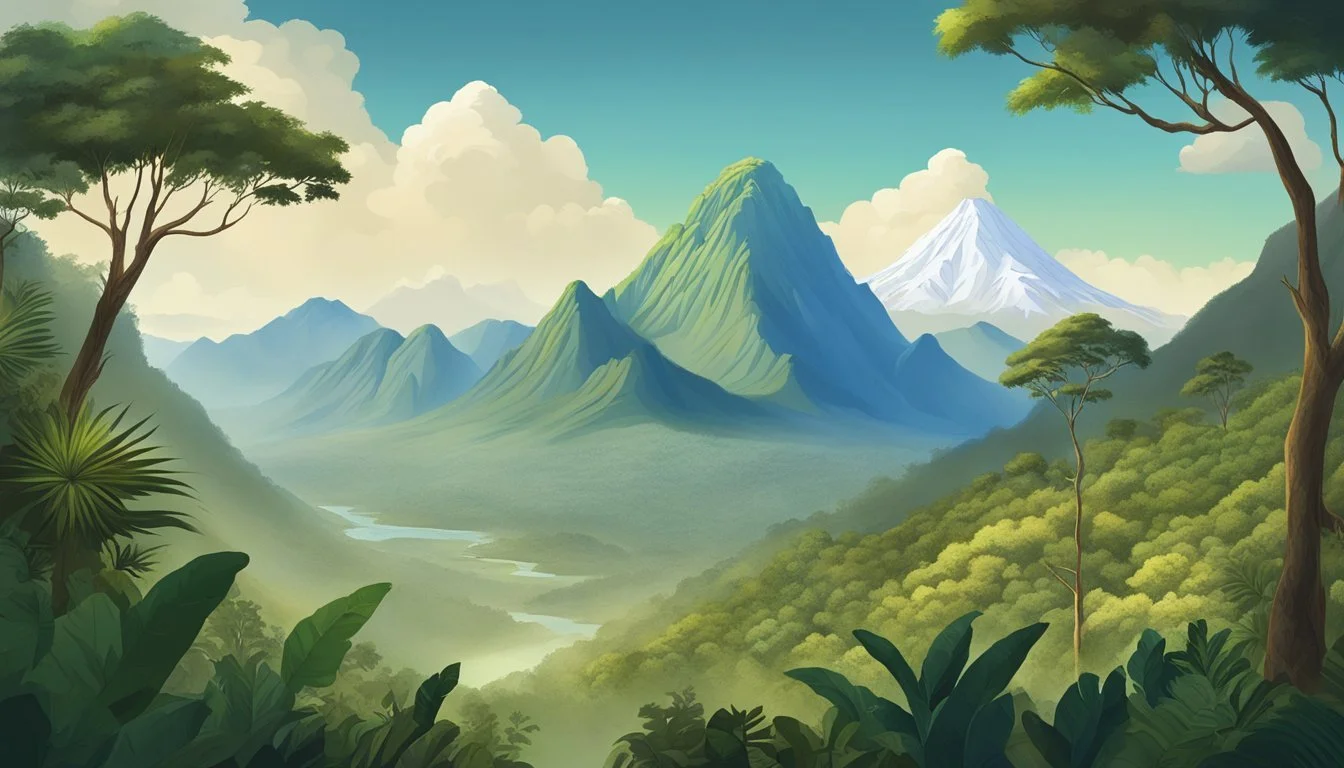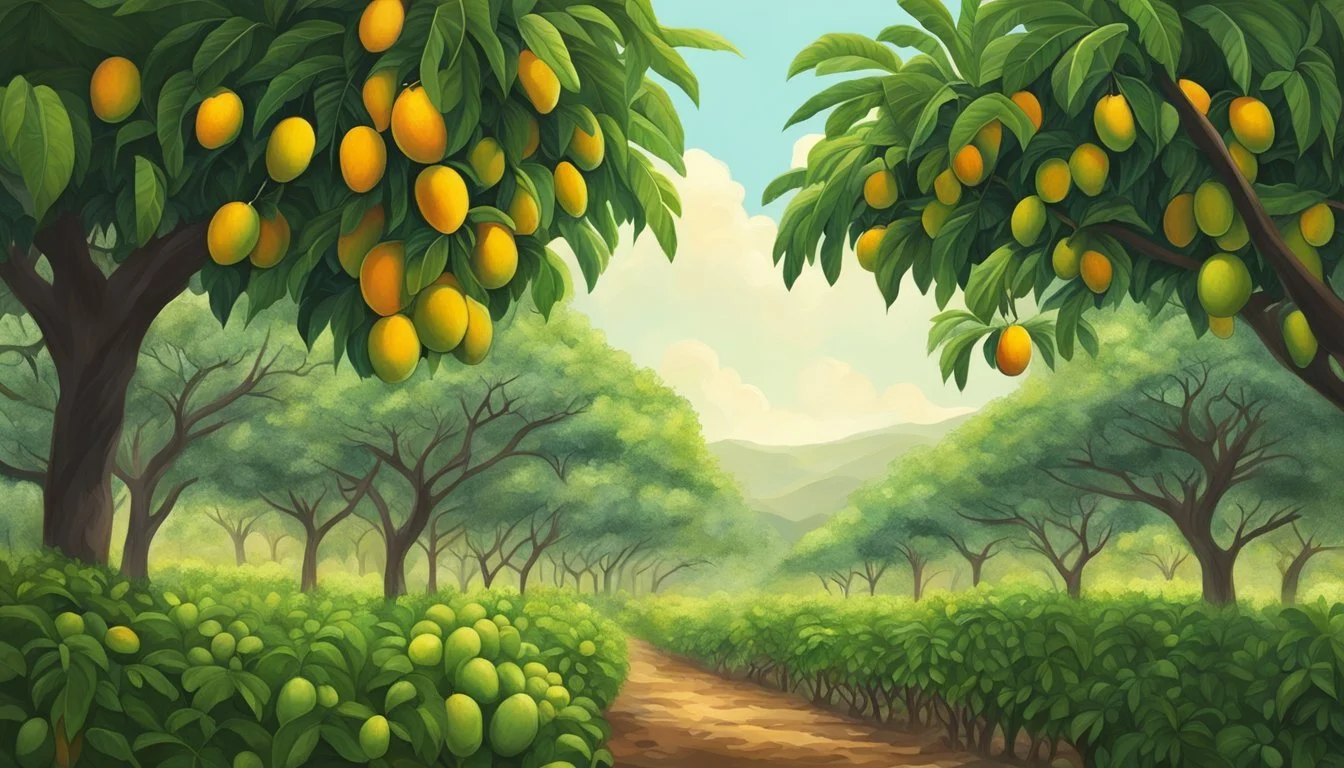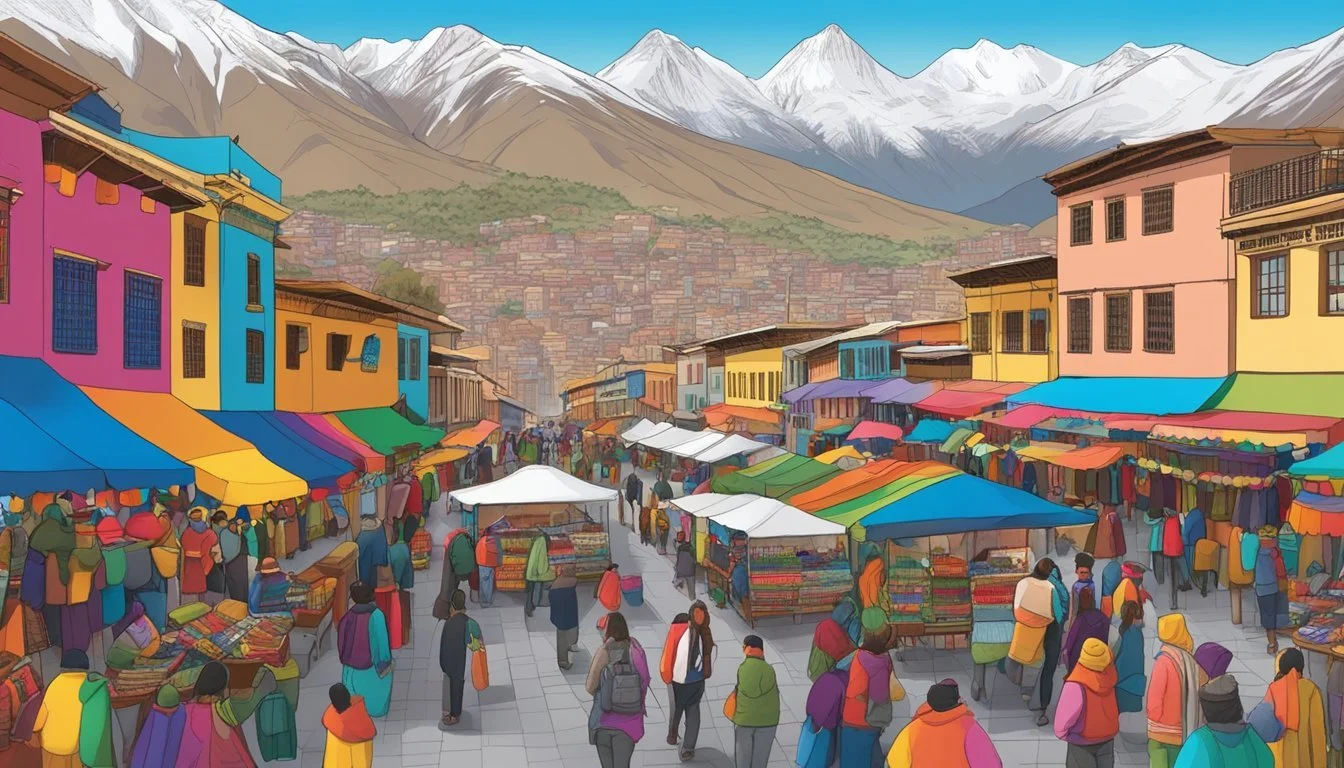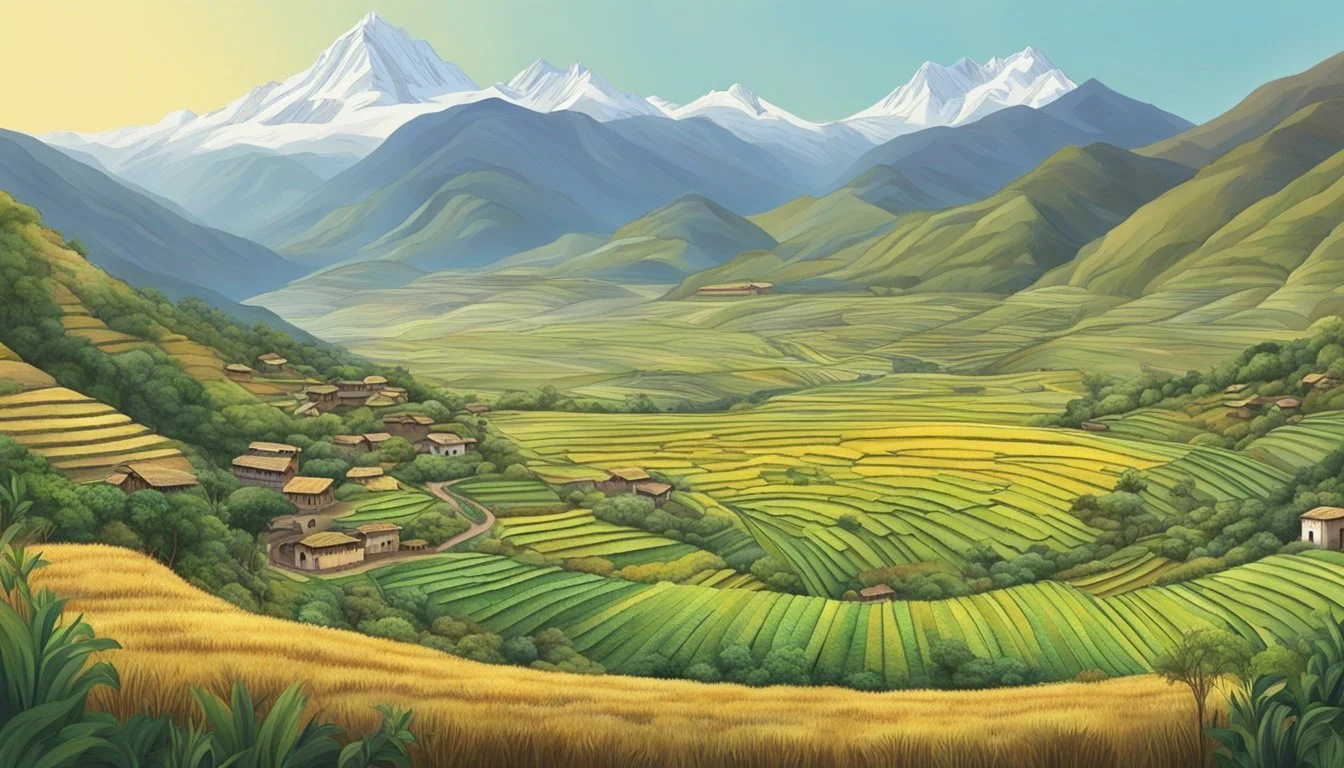10 Fascinating Documentaries About Bolivia
Unveiling the Hidden Gems of South America
Bolivia, a land of breathtaking landscapes and rich cultural heritage, has captured the imagination of many filmmakers over the years. From its towering Andean peaks to its vast salt flats, this South American nation provides a stunning backdrop for documentary storytelling. These films offer viewers a window into Bolivia's complex history, diverse society, and unique challenges.
Documentaries about Bolivia provide invaluable insights into the country's political landscape, indigenous cultures, and environmental issues. They explore topics ranging from the silver mines of Cerro Rico to the campaign trails of presidential candidates. Through these films, audiences can gain a deeper understanding of Bolivia's past and present, as well as the forces shaping its future.
1) The Devil's Miner
"The Devil's Miner" is a compelling documentary directed by Kief Davidson and Richard Ladkani. Released in 2005, the film sheds light on the harsh realities of child labor in Bolivia's silver mines.
The documentary follows 14-year-old Basilio Vargas and his 12-year-old brother Bernardino. These young boys work in the ancient Cerro Rico silver mines near Potosí, Bolivia.
Cerro Rico, meaning "Rich Hill," has been a source of mineral wealth for centuries. Despite its riches, the mountain is infamous for dangerous working conditions and exploitation of workers, including children.
The film captures the daily struggles of Basilio and Bernardino as they navigate the treacherous mines. It highlights their efforts to support their family while attempting to receive an education.
"The Devil's Miner" provides a raw, unfiltered look at the socioeconomic issues facing Bolivia's mining communities. It exposes the stark contrast between the mineral wealth extracted from Cerro Rico and the poverty of those who mine it.
Through its intimate portrayal of Basilio and Bernardino, the documentary raises important questions about child labor, economic inequality, and the human cost of resource extraction.
2) Our Brand Is Crisis
Our Brand Is Crisis is a 2005 documentary directed by Rachel Boynton. It examines the involvement of American political consultants in the 2002 Bolivian presidential election.
The film focuses on the campaign of Gonzalo Sánchez de Lozada, also known as "Goni". It showcases the strategies employed by the U.S. consulting firm Greenberg Carville Shrum to secure his victory.
Boynton's documentary provides an inside look at the application of American-style political marketing in a foreign context. It raises questions about the ethics and impact of exporting campaign tactics to other countries.
The film captures tense moments and strategic decisions made during the election process. It highlights the cultural disconnect between the American consultants and the Bolivian political landscape.
Our Brand Is Crisis received critical acclaim for its revealing portrayal of modern political campaigns. It offers viewers a unique perspective on the globalization of election strategies and their potential consequences.
In 2015, the documentary inspired a fictional adaptation starring Sandra Bullock. While the film took creative liberties, it brought renewed attention to the original documentary and its thought-provoking subject matter.
3) The Fight for Tierra
"The Fight for Tierra" is a powerful documentary that sheds light on Bolivia's ongoing land struggles. It focuses on the indigenous communities' efforts to reclaim ancestral territories and protect their way of life.
The film follows several Bolivian activists as they navigate complex legal battles and face opposition from powerful landowners. It highlights the historical context of land distribution in Bolivia, tracing back to colonial times.
Viewers witness tense confrontations between indigenous groups and local authorities. The documentary also showcases peaceful protests and community organizing efforts to assert land rights.
Interviews with farmers, community leaders, and legal experts provide diverse perspectives on the issue. The filmmakers capture stunning landscapes of Bolivia's varied terrain, contrasting its natural beauty with the human conflict over its ownership.
"The Fight for Tierra" examines the impact of land reform policies implemented by former President Evo Morales. It explores both the successes and challenges of these initiatives in addressing long-standing inequalities.
The documentary presents a balanced view of a complex issue, giving voice to multiple stakeholders in Bolivia's ongoing land debates. It offers viewers a nuanced understanding of the social and economic factors at play in this crucial struggle.
4) When Two Worlds Collide
"When Two Worlds Collide" is a powerful documentary that sheds light on the conflict between indigenous communities and the Peruvian government. Directed by Heidi Brandenburg and Mathew Orzel, the film focuses on the struggle of Amazonian people to protect their land.
The documentary centers on indigenous leader Alberto Pizango, who spearheads the resistance against government plans to exploit natural resources in the Amazon. It offers a gripping account of the clash between traditional ways of life and modern economic interests.
The film presents striking imagery of the Peruvian Amazon and its inhabitants. It explores the complex issues surrounding land rights, environmental conservation, and economic development.
"When Two Worlds Collide" stands out for its thought-provoking content and ability to capture the human stories behind the headlines. It provides viewers with a deeper understanding of the challenges faced by indigenous communities in South America.
While not specifically about Bolivia, this documentary offers valuable insights into similar conflicts occurring across the region. It serves as a compelling example of the broader issues affecting many South American countries, including Bolivia.
5) Tambogrande: Mangos, Murder, Mining
This 2007 documentary directed by Ernesto Cabellos and Stephanie Boyd chronicles the struggle of a Peruvian farming community against a large-scale mining project. The film focuses on the town of Tambogrande in northern Peru.
Tambogrande's residents had transformed barren desert land into a thriving agricultural area, primarily growing mangoes and limes. Their lives were disrupted when a Canadian mining company discovered gold deposits beneath their farms.
The documentary captures the community's resistance to the proposed mine. It depicts their journey from initial violent protests to more organized, peaceful forms of opposition.
A key moment in the film is the assassination of Godofredo García Baca, a local leader who opposed the mining project. This event galvanized the community's resolve to protect their land and livelihoods.
The film showcases how Tambogrande's residents utilized various methods to make their voices heard. They employed dance, music, and even the internet to spread awareness about their cause.
"Tambogrande: Mangos, Murder, Mining" received international recognition, winning awards at film festivals. It serves as a powerful portrayal of a community's fight against corporate interests and environmental degradation.
6) The Last Guardians
"The Last Guardians" is a compelling documentary released in 2017, directed by Adam Punzano and Joe Tucker. The film focuses on two indigenous tribes in the Ecuadorian Amazon: the Sàpara and Kichwa.
This 45-minute documentary explores the struggles these communities face as they attempt to preserve their culture and way of life. The main threat they confront is encroachment from oil companies seeking to exploit their ancestral lands.
The film highlights the deep spiritual and cultural connections these tribes have with their environment. It showcases their efforts to protect not only their heritage but also the rich biodiversity of the Amazon rainforest.
"The Last Guardians" provides viewers with a rare glimpse into the lives of these indigenous peoples. It captures their traditions, beliefs, and the challenges they encounter in the modern world.
While the documentary is set in Ecuador rather than Bolivia, it offers valuable insights into the broader issues facing indigenous communities throughout South America. The film serves as a powerful reminder of the importance of preserving cultural diversity and protecting natural resources.
7) Salvador Allende
"Salvador Allende" is a powerful documentary directed by Patricio Guzmán, released in 2004. The film explores the life and political career of Chile's former president Salvador Allende.
Guzmán's work provides an in-depth look at Allende's socialist policies and his rise to power as the world's first democratically elected Marxist leader. The documentary features rare archival footage and interviews with Allende's family members and close associates.
The film chronicles Allende's presidency from 1970 to 1973, highlighting his efforts to implement social and economic reforms. It also examines the political tensions and external pressures that culminated in the 1973 coup d'état.
Guzmán's documentary offers a balanced perspective on Allende's controversial legacy. It presents both the achievements and challenges of his administration, allowing viewers to form their own opinions.
While focused on Chile, "Salvador Allende" provides valuable insights into Cold War politics and U.S. involvement in Latin America. The film serves as an important historical record and a thought-provoking examination of socialism in practice.
8) Cocalero
Cocalero offers a unique glimpse into Bolivian politics through the lens of Evo Morales' 2005 presidential campaign. Directed by Alejandro Landes, this documentary follows Morales, an indigenous labor leader and coca farmer, as he seeks to become Bolivia's first indigenous president.
The film provides intimate access to Morales and his team during the pivotal campaign. It showcases the grassroots nature of his political movement, which emerged from Bolivia's coca farming unions.
Cocalero captures the energy and challenges of Morales' bid for the presidency. It depicts his interactions with supporters, campaign strategy sessions, and public appearances across Bolivia.
The documentary also explores broader themes of indigenous rights, Bolivia's relationship with the United States, and the controversy surrounding coca cultivation. It offers context on the social and political landscape that shaped Morales' rise to power.
Landes' observational style allows viewers to draw their own conclusions about Morales and the historical moment. The film serves as both a character study and a snapshot of a transformative period in Bolivian politics.
9) Bolivia: Who Seeks Justice?
"Bolivia: Who Seeks Justice?" is a thought-provoking documentary that examines the complex issue of indigenous justice systems in Bolivia. The film explores the implementation of the country's 2009 constitution, which allows indigenous communities to administer their own forms of justice.
The documentary captures the initial meetings between traditional indigenous leaders and government officials as they navigate this new legal landscape. It provides insight into the challenges and opportunities presented by recognizing customary law alongside the state judicial system.
Through interviews with community members, legal experts, and policymakers, the film offers a balanced look at the tensions between cultural preservation and human rights standards. It raises important questions about the role of traditional practices in modern governance.
The documentary also touches on broader issues of social inequality and political representation in Bolivia. It highlights the ongoing struggle for indigenous rights and self-determination in a country with a complex colonial history.
"Bolivia: Who Seeks Justice?" serves as a valuable resource for understanding the unique legal pluralism experiment unfolding in Bolivia. It offers viewers a nuanced perspective on the complexities of balancing cultural diversity with national unity in a multicultural society.
10) Even the Rain
"Even the Rain" is a captivating film that blends historical drama with contemporary social issues in Bolivia. Directed by Icíar Bollaín, the movie follows a Spanish film crew making a documentary about Christopher Columbus in Cochabamba.
The production takes place during the real-life Cochabamba Water War of 2000. This conflict arose when the government privatized the city's water supply, leading to widespread protests.
As the fictional crew films scenes depicting the exploitation of indigenous people by Columbus, they witness modern-day Bolivians fighting against similar injustices. This parallel highlights the ongoing struggles faced by indigenous communities.
The film stars Gael García Bernal as the idealistic director and Luis Tosar as the pragmatic producer. Their characters grapple with moral dilemmas as the local uprising intensifies around them.
"Even the Rain" received critical acclaim for its thought-provoking narrative and powerful performances. It effectively showcases the complexities of Bolivian history and contemporary social issues.
Cultural Insights Through Documentaries
Documentaries offer a unique window into Bolivia's rich cultural tapestry and breathtaking landscapes. These films provide viewers with an intimate look at the country's indigenous communities and diverse natural environments.
Understanding Indigenous Communities
Bolivia's documentaries shine a spotlight on its indigenous populations, revealing their traditions, challenges, and resilience. Films like "Cocalero" explore the political landscape through the lens of indigenous activism. This documentary follows Evo Morales, Bolivia's first indigenous president, from his roots as a coca farmer to his rise in national politics.
Other films focus on daily life in indigenous communities. They showcase traditional crafts, agricultural practices, and spiritual beliefs. These documentaries often highlight the struggle to preserve cultural identity in the face of modernization and economic pressures.
Exploring Bolivia's Natural Landscapes
Documentary filmmakers capture Bolivia's diverse ecosystems with stunning cinematography. From the salt flats of Salar de Uyuni to the Amazon rainforest, these films showcase the country's natural wonders.
Many documentaries explore the relationship between Bolivians and their environment. They document traditional farming methods in the Andean highlands and fishing practices in Lake Titicaca. Some films also address environmental challenges, such as deforestation and climate change impacts on local communities.
These nature-focused documentaries not only display Bolivia's beauty but also raise awareness about conservation efforts. They often feature interviews with local experts and community members working to protect their natural heritage.
Historical Context in Bolivian Documentaries
Bolivian documentaries offer a window into the nation's complex past, exploring pivotal moments that shaped its identity. These films illuminate Bolivia's journey from colonial rule to modern political struggles.
Colonial History and Its Impact
Spanish colonization left an indelible mark on Bolivia. Documentaries often focus on the exploitation of indigenous populations and natural resources, particularly in the silver mines of Potosí. The film "The Devil's Miner" examines the legacy of colonial mining practices, following young workers in the Cerro Rico mines.
This mountain, once the world's largest silver deposit, fueled the Spanish Empire's wealth. Its history reflects the broader impact of colonialism on Bolivia's social and economic structures.
Documentaries also explore how colonial policies influenced modern ethnic divisions and land ownership patterns. These films highlight the resilience of indigenous cultures in the face of Spanish attempts to erase local traditions and languages.
Revolution and Political Change
Bolivia's post-colonial era has been marked by frequent political upheavals. Documentaries capture key moments like the 1952 Bolivian National Revolution, which brought significant land reform and expanded voting rights.
Films examine the rise of indigenous political movements, culminating in the 2005 election of Evo Morales, Bolivia's first indigenous president. They detail the challenges faced by these movements and their impact on national policies.
Water rights feature prominently in political documentaries. The 2000 Cochabamba Water War, where citizens protested water privatization, is a frequent subject. These films analyze how resource conflicts shape Bolivia's political landscape.
Documentaries also explore Bolivia's role in the Cold War era, including the capture and execution of Che Guevara in 1967. They provide context for understanding Bolivia's complex relationships with foreign powers and neighboring countries.










